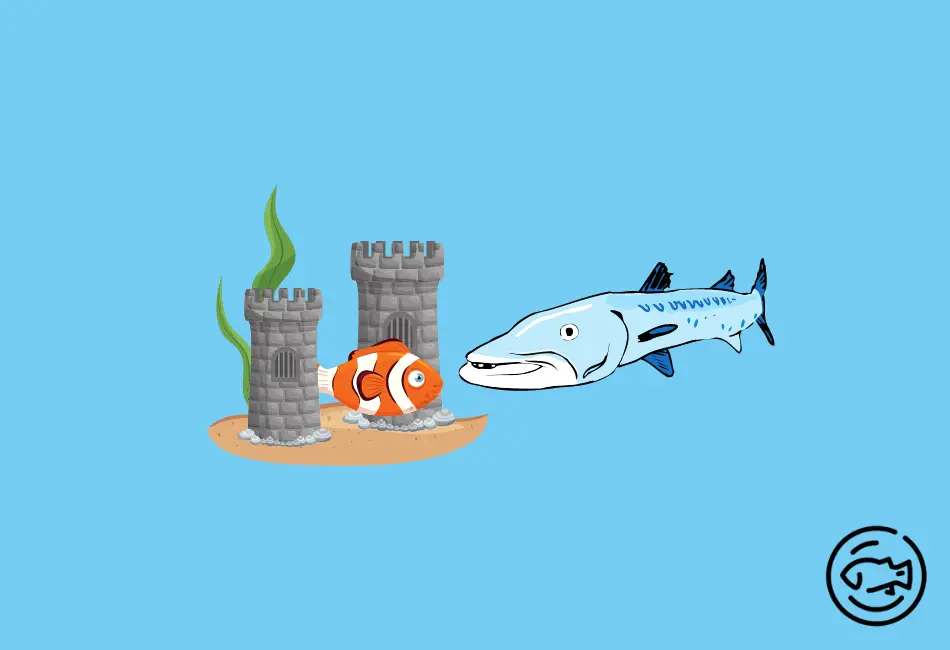The short answer is no; barracudas do not eat clownfish. Barracudas are predators of larger fish and may occasionally eat small fish but do not hunt clownfish.
Clownfish are small fish that live in saltwater habitats like near coral reefs, and some species feed mainly on plankton, algae, and other microscopic organisms.
Barracudas are large predatory fish with broad snouts that live in warm-temperate tropical seas worldwide.
They will occasionally eat a dead or wounded clownfish if it drifts close enough to its mouth, but the chances of a barracuda eating a clownfish or clownfish eggs are slim to none.
Marine biologists have observed that clownfish are not the most desirable prey to the Barracuda because of their small size and hard outer shells, which may make them more problematic for the Barracuda to swallow.
What Do The Barracudas Eat?
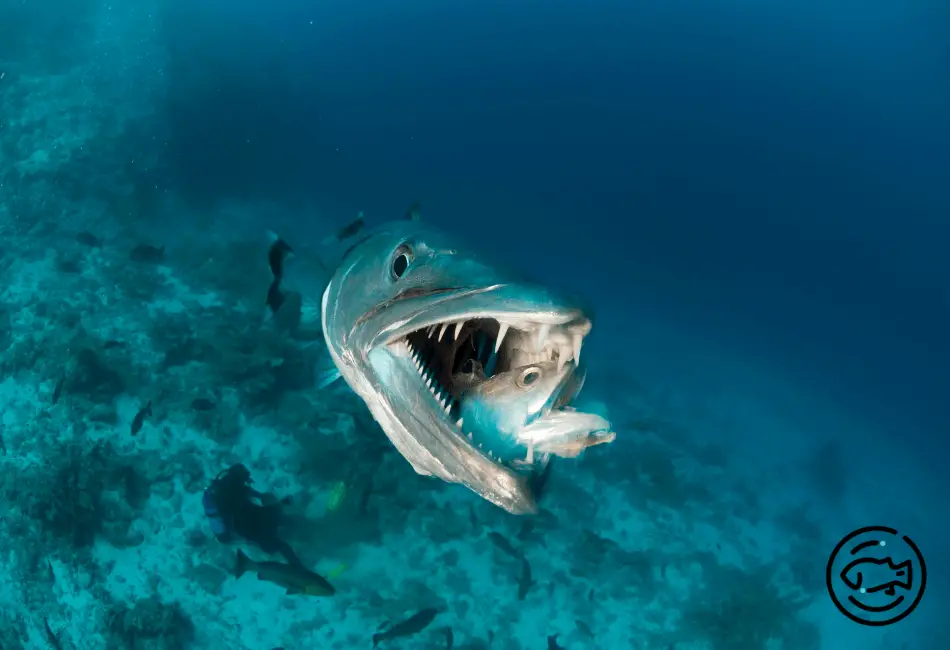
Barracudas are undoubtedly vicious and opportunistic, but they do not eat fish eggs or clownfish for that matter.
They feed on a broad scope of prey, including fish and crustaceans, which are often crushed on the barracudas’ broad snouts before being swallowed whole. In addition, they feed on other aquatic life forms like crustaceans, squid, shrimp, and turtles.
Reef fish are their primary food source but have also been observed eating dolphins and porpoises.
They can typically eat larger fish because they have numerous sharp teeth that can tear prey into smaller pieces that can be swallowed easily.
Like most fish, barracudas are opportunistic feeders who take advantage of food sources when they appear. However, experiments and observations have shown that they can feed on small pieces of floating and sunken food.
Where Can You Find Barracudas?
You will find barracudas in the tropical and subtropical waters of the Atlantic, Pacific, and Indian Oceans.
They can be discovered in varied sizes, from about 2 feet (0.6 m) to about 8 feet (2.5 m).
In the Pacific Ocean, they are more commonly found near coral reefs at depths ranging from 3 feet (0.9 m) to 120 feet (37 m). Barracudas are also among the few fishes that have been observed swimming in fresh water.
Fishkeepers and pet owners have always been interested in the Barracuda as they are fun to watch while feeding.
They are beautiful fish with various colors and patterns, and their mouths open wide as they feed. They may also be called “jacks” or “jackfish.”
They have one of the most distinctive reputations; however, Barracudas are giant fish with powerful jaws and hunt in groups. There are numerous stories that barracudas eat humans, but all these stories are false.
The only time they have been observed attacking humans is when they have been injured or cornered by the person and feel threatened.
As predators, they will hunt in groups of 2 or 3.
They may also be found swimming alone, but the chances are greater that you will find them in groups.
The colors and patterns on their bodies blend in with their surroundings, allowing them to sneak up on unsuspecting prey.
As they have grown accustomed to humans and have seen us as a threat rather than food, they rarely attack unless provoked.
It has been a rare sighting to see barracudas eat humans or attack them.
How Long Do Barracudas Live?
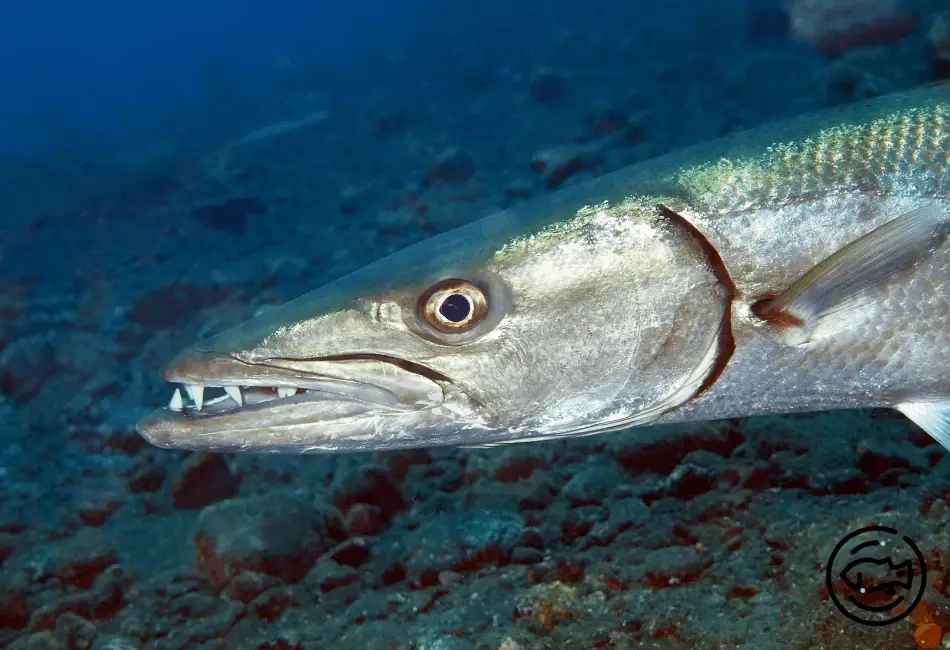
Barracuda lives for around 15 years in captivity but can live for up to 25 years in the wild.
The lifespan of these fish is closely linked to their average size, and they grow very quickly.
Barracudas are born as larvae, small fish with large heads and rounded bodies, and they would look like a minnow if they weren’t transparent.
They grow fast, however, and within a couple of months, will turn into a small fish called an “eyed-juvenile.”
At this stage, they have scales and can be identified easily as Barracuda. Then, within another month, they will reach their mature form.
Barracudas grow approximately 10 inches (25 cm) per year in their first five years of life.
They grow very quickly and reach sexual maturity around six years old.
Their maximum life span is between 15 – 25 years.
As with most other fish, they do not live as long in captivity as they do in the wild because they lack fear towards humans and their exposure to bacteria from other fish and us.
What Are The Barracuda’s Enemies?
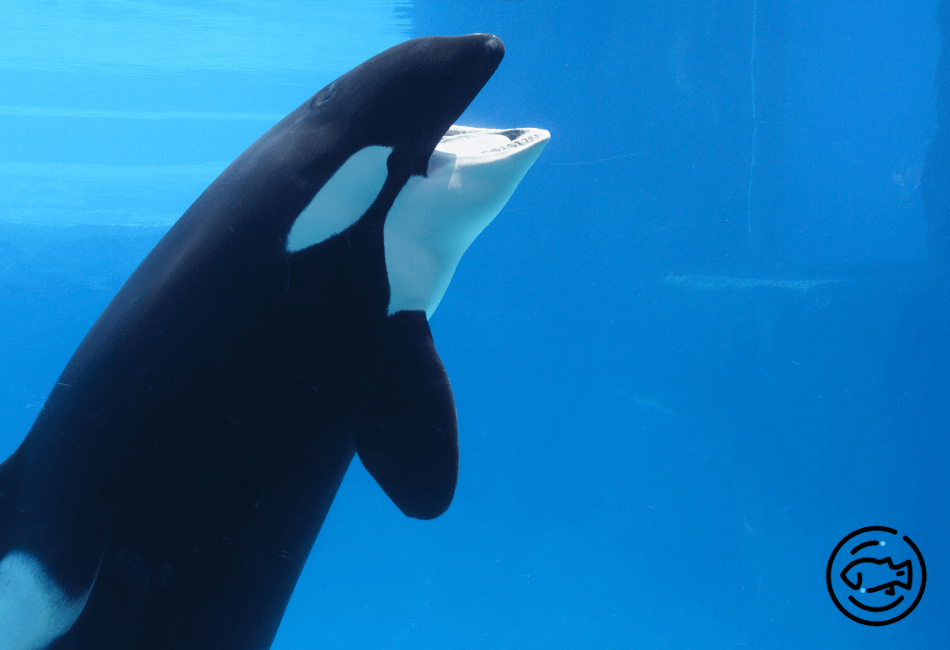
Barracudas have few enemies due to their size and speed. However, they are sometimes hunted for sport by humans.
Sharks may attack a barracuda if a barracuda spots an injured shark that another victim has left behind.
When one shark is severely damaged and lying on the bottom of the sea, it may attract other sharks in search of food.
The barracudas may swim into the mass of sharks, and when they spot an injured shark, they often attack it.
Apart from sharks and humans, other common enemies are:
– killer whales
– pollution
– habitat destruction
Also Read: Blue Clownfish – Are They Real or Fake?
How Do Barracudas Reproduce?
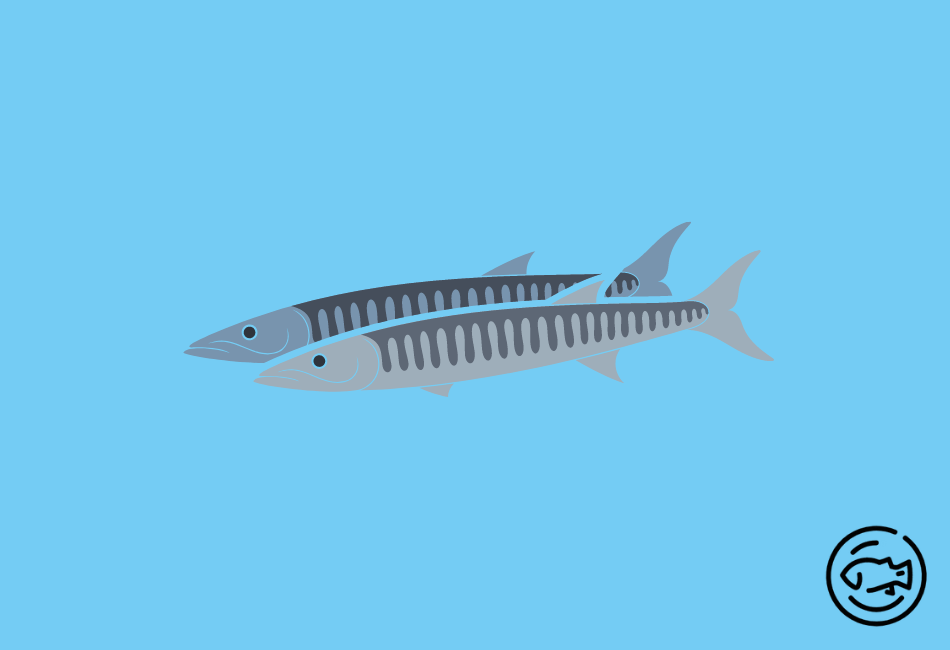
Female Barracuda lay eggs in a nest tucked away on a rock or in coral reefs, which they construct at the base of the ledge.
They are highly protective of their eggs and actively defend them from predators and other dangers. The eggs are fertilized externally, but whether the female plays any part in their care is unknown.
The larvae will develop in the estuary after fertilization, and when they turn into juveniles, they will start moving toward different ocean areas.
Juveniles: Juveniles are free-swimming when they hatch out of the eggs. They can be identified by their yellowish body, which is covered with dark spots on a brown background. The males will travel in loose groups, occasionally with other males or females. Still, only one male is usually found guarding over a group of juveniles at any time so that other fish do not eat fish eggs.
How Can I Tell The Sex Of My Barracuda?
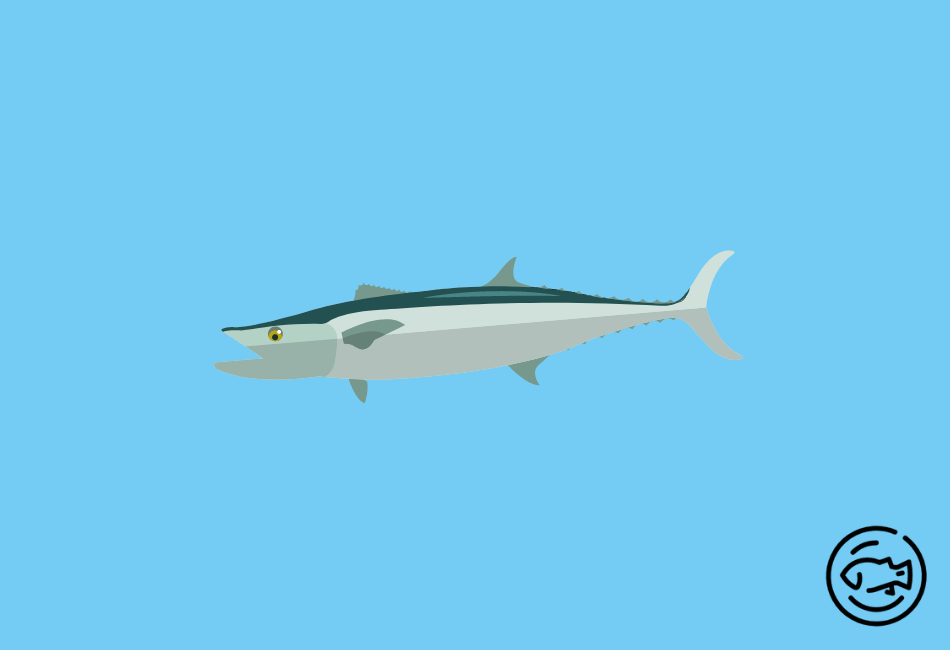
Males have a more pointed dorsal fin than females, almost vertical. The male also has large gonopodium, which releases sperm into the female’s genital opening.
The males can be efficiently recognized by their sharp fins, while the females often have rounded fins.
Females attain sexual maturity at approximately eight years old and males at ten years old.
The female will lay 500 – 2000 eggs in one spawning season and guard them until they hatch.
The female will often chase away other females seen near her eggs as she is very protective of them and will care for the eggs from when they are laid until they hatch out, which takes about two weeks. They protect their spawns so that the other fish don’t try to eat fish eggs.
Do Humans Eat Barracudas?
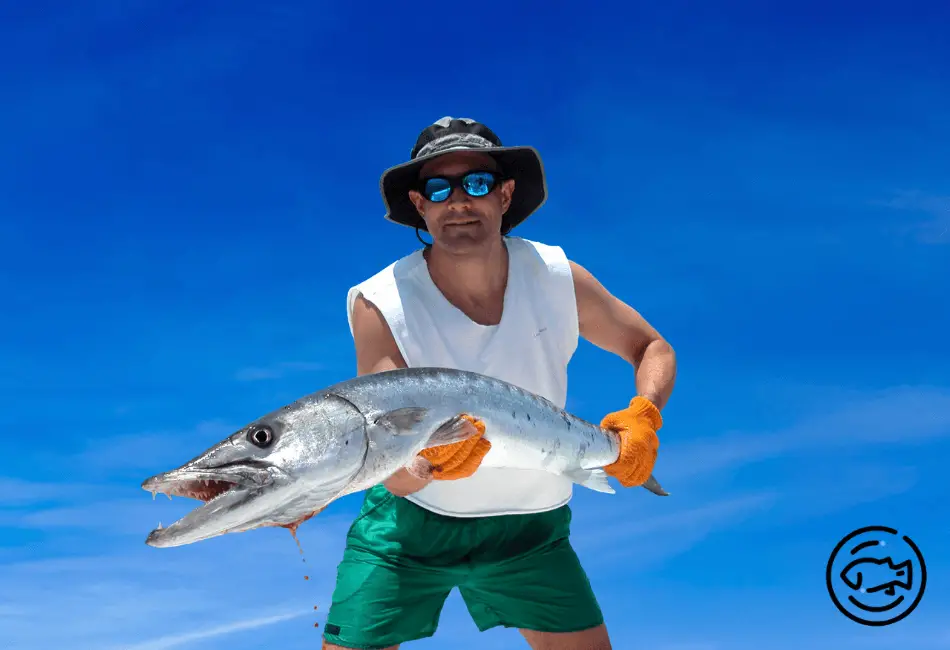
In some parts of their range, barracudas make up a significant part of the diet due to their high meat yield and ease of capture, but humans do not take them in most places. This is because they are big and too difficult to catch.
Some people think this is because they are dangerous, but this is not true as fish that grow as large as these are extremely rare and very dangerous to humans.
In some zones of their range, they are a delicacy among locals, both as food and as an aphrodisiac.
However, the smell can be very unpleasant, which may deter humans from eating the fish.
Do Barracudas Eat Fish Eggs?
So, do you think that the Barracudas eat fish eggs? The simple answer is No!
The barracudas are known for growing up to 3 feet long and weighing about 100 pounds. We highly doubt that fish eggs will satisfy their appetite!
Barracudas have a more satisfactory preference for hunting tunas and mackerels. Despite what you may have seen in Finding Nemo, they don’t usually eat fish eggs!
The eggs of a clownfish are barely 3-4mm big. And these tiny eggs are not going to fulfill the hunger of barracudas!
What About Barracuda Diseases?
Barracudas are very sensitive to most diseases that affect other tropical fish, and it is best to monitor your new Barracuda closely after purchase.
Barracudas are very vulnerable to the following diseases:
Fin Rot And Ich
Fin rot can be a severe disease for Barracuda as it is caused by excessive, wrong kind of food and poor water conditions.
The fin rot develops into a white, slimy spot that spreads on the body and tail fin.
This can be prevented by feeding your fish correctly, as they typically eat larger fish. You can also keep them in clean water enriched with proper supplies of vitamins, trace elements, and minerals.
Bacteria cause ich, which starts as a small yellowish dot that grows on the body.
It spreads further and kills the fish’s flesh more quickly every day.
Avoidable causes are excess food in the tank and poor water quality.
When this disease occurs, a fish will become weaker and may float at the surface of its tank, which means that it cannot breathe properly and often dies of suffocation.
Mouth Rot
Mouth rot is a disease caused by poor water quality and develops as a white substance inside the fish’s mouth, spreading and killing the whole body.
The best approach to avert this disease is by providing proper water conditions in your fish tank and feeding your fish good-quality freshwater food such as flake or frozen foods.
Dropsy
Dropsy begins as a small, white spot on a fish’s body or tail and is caused by bad water quality, which may be due to high ammonia or nitrite levels.
When this disease occurs, it spreads quickly and weakens the fish’s immune system, so other ailments also have an easy strike.
The only way to prevent this is by maintaining good water conditions in your tank and feeding your fish properly with healthy food.
Conclusion: Do Barracudas Eat Clownfish?
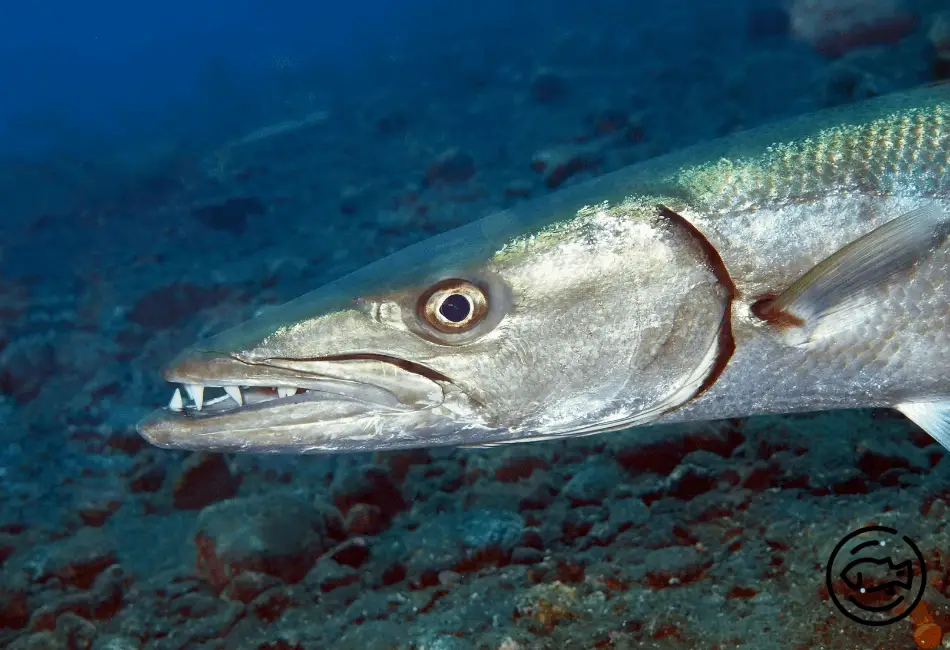
So, do Barracudas eat clownfish? Well, the answer is no.
They do not eat clownfish. As we have seen above, the big Barracuda is not interested in eating small fish.
Barracuda are carnivores, and typically eat larger fish as they feed on other fish, squid, crabs, and octopuses.
They have sharp teeth and powerful jaws with which they can kill their prey by biting it or crushing it with their strong pectoral fins, which are used for movement when the fish is swimming around the bottom of the sea looking for food.
They are usually very protective of their young, and the female will stay around the nest to defend her eggs from predators and other dangers so that other fish do not eat fish eggs.
However, the behavior of barracudas is very aggressive, especially if they have just eaten. Then they may attack anything which comes close to them.


